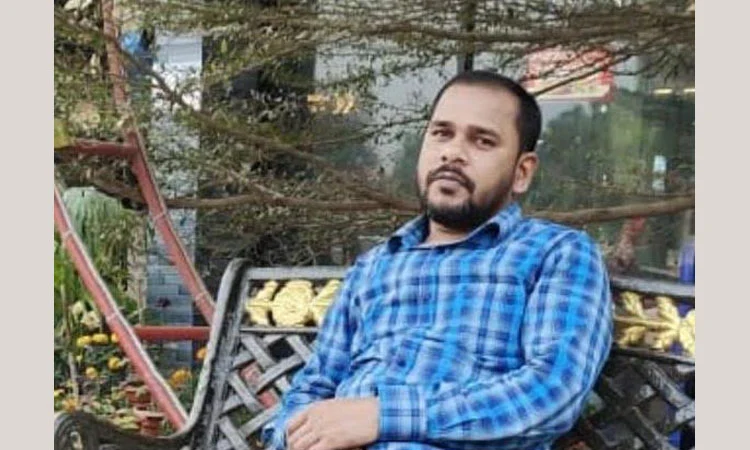
By Akkas Sikder
JHALAKATHI, June 17, 2025 (BSS) – Kamal Hossain Sabuj, 43, stepped out on the morning of July 20 to have breakfast in a nearby restaurant but never returned, as he was shot dead by members of law enforcement agencies during the anti-discrimination student movement.
Sabuj, a resident of Shahjadpur in the capital’s Badda area, was driver by profession. He went out of his house wearing only a lungi and a T-shirt as it was the first day of curfew, and he had no rush to go to his workplace.
As he was about to return home after finishing breakfast, a bullet struck his skull, splitting it in two and spilling out his brain, family members said, quoting eyewitnesses.
One of his companions braved a hail of bullets to rush him to the hospital, but the authorities refused to admit him, leaving him to die without treatment.
While speaking to BSS recently at her home, Sadia Begum Rani, wife of Sabuj, said, “My husband was shot dead by members of Law Enforcement agencies in the Badda area of the capital city of Dhaka.”
“A man phoned me after 9 am while I was at the hospital and asked who I was and what my relationship was with Sabuj,” Sadia said.
“I hid my identity and replied, ‘I’m his cousin. Please tell me what happened to him.’ Then I learnt my husband was no more,” she added.
She mentioned that the bystander who took Sabuj to the hospital later carried the body to a madrasa in Shahjadpur.
“After a video recorded there surfaced on YouTube, the caretaker of our house recognised him. Arrangements for my husband’s bathing and funeral were then made at that madrasa in Shahjadpur,” she said.
Sabuj’s body was brought to his father-in-law’s house in Agarbari village under Basonda union of Jhalakathi Sadar upazila after 7 pm on July 20.
“Our daughter had asked for mangoes, and my husband promised to bring her some. He did return, but as a dead body,” Sadia said, her voice choked with emotion.
“When her father was brought home, the little girl kept asking again and again about the mangoes,” she added.
He was buried at the graveyard of Agarbari Mosque in Basonda union under Jhalakathi Sadar upazila.
Sadia said, “We now live with our three children in a rented house in the Bowbazar area of Jhalakathi town, paying Taka 4,000 per month.”
“From July 20, when my husband’s body was brought home, until August 5, people barely spoke to us. For those 16 days, they avoided us, thinking we were against Sheikh Hasina’s fascist regime,” she said.
“Everything started to change after the fall of Sheikh Hasina on August 5. When the fascist Hasina fled, many people began to reach out to us.”
“Now, many people respect us because my martyred husband sacrificed his life for the country. But my life remains uncertain. How will I raise my children and run the household?” she said.
“I bade my husband a final farewell at my father’s house. I often go there with the children, trying to forget everything. But how can I forget July?” She asked in tears.
“I demand capital punishment for those who killed my husband,” she said, weeping.
Sabuj’s eldest son, Samiul, is an eighth-grade student at Jhalakathi Government Boys' High School. His five-year-old second son, Abdullah, runs around the house with his father's ID card hanging around his neck, while his youngest daughter will turn four on September 25.
Samiul told BSS: “I want justice for my father’s murder. Why did I have to lose him at this age? He was the only hope of our family. Now we have no one. I want the killers of my father to be punished.”
His 70-year-old father, Munsur Hawladar, who hails from Balakdia village in Binoykathi union of Jhalakathi Sadar upazila, has been bedridden for several years after suffering a stroke. His mother, Mahmuda Begum, died 30 years ago.
Sabuj was the third among four siblings. Of the remaining family members, one brother owns a shop, another drives a pickup truck, and the only sister is married.
Sabuj, born on January 2, 1981, married Sadia Begum Rani, daughter of farmer Ismail Hawladar of Agarbari village in Basonda union of Jhalakathi Sadar upazila, on July 29, 2008.